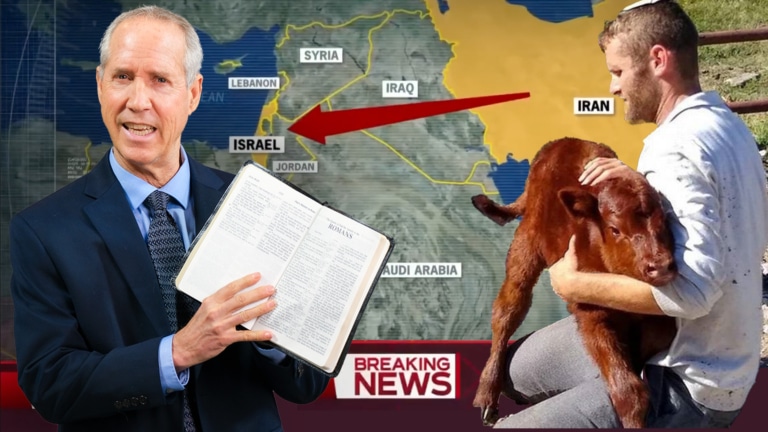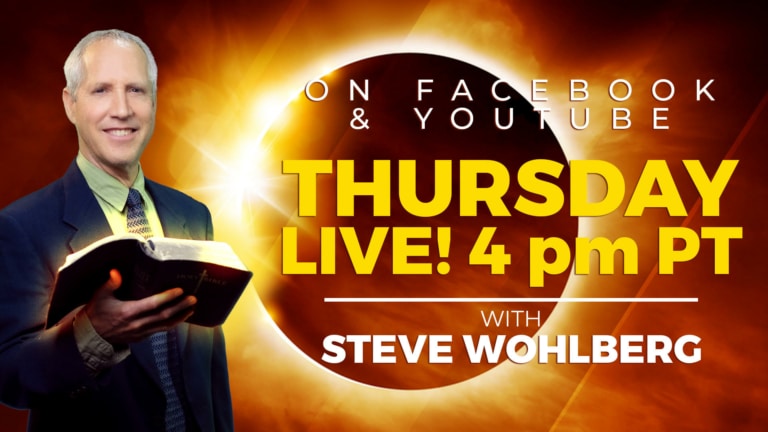To nearby residents, it will always be remembered as the “Esperanza Fire.” Deliberately ignited by an evil arsonist, the October 2006 wind-driven blaze destroyed nearly 60,000 acres and 34 homes 100 miles east of Los Angeles, California. Worst of all, it killed five firefighters who were suddenly immersed in flames when the wind unexpectedly shifted. On Sunday, November 5, nearly 10,000 mourners attended a memorial service for the fallen fighters at an outdoor amphitheater in Devore, CA. “We will never forget their sacrifice,” Governor Arnold Schwarzenegger declared. As the ceremony concluded, a group of U.S. Forest Service airplanes soared overhead while bagpipers played “Amazing Grace.”
This article concludes my 13-part series about what happens when we die, the perils of trying to talk to dead people, and the final fate of the lost in a horrific place that the New Testament calls, “the lake of fire.” Believe me, as awful as the Esperanza Fire was, it bears no comparison to the fiery sea of judicial punishment described in Scripture. West of Palm Springs, CA, five men lost their physical lives. At the end of the world, the consequences are infinitely more serious. Notice carefully the net result of being in cast into Revelation’s apocalyptic furnace:
Then Death and Hades were cast into the lake of fire. This is the second death (Revelation 20:14, 15).
But the cowardly, unbelieving, abominable, murderers, sexually immoral, sorcerers, idolaters, and all liars shall have their part in the lake which burns with fire and brimstone, which is the second death (Revelation 21:8).
Twice the book of Revelation states that the fate of sinners who suffer in “the lake of fire” is “ the second death .” Underscore that last word: death . Throughout these “Hot Topic of Hell” posts I have contended that, contrary to popular opinion, the final fate of the damned is not to sizzle endlessly in conscious torment, but to ultimately “perish” (John 3:16) and become “ashes” (Malachi 4:3). “‘The day which is coming shall burn them up ,’ says the LORD of hosts, ‘that will leave them neither root nor branch’” (Malachi 4:1). This is God’s Word, not my opinion.
But I have saved my best argument for last. Every true Christian who believes the gospel accepts the fundamental truth that, on the cross of Calvary, Jesus Christ paid the “full price” for the sins of the world. Agreed? The Bible says unequivocally,
Christ died for our sins (1 Corinthians 15:3).
He Himself is the propitiation for our sins , and not for ours only but also for the whole world ( 1 John 2:2 ).
This truth is basic. Jesus Christ paid the full price for our sins. Isaiah predicted, “The chastisement for our peace was upon Him, and by His stripes we are healed” (Isaiah 53:5). “Chastisement” means “punishment.” It was our “punishment” that Jesus Christ endured in Gethsemane and on the cross. In other words, what should have happened to us, fell on Him . What we deserve, He endured . He took our place. Again, all true Christians accept this, but only a few realize the inescapable implications.
Think about it. If “the wages of sin” were conscious, unending, never ceasing, eternal torment, then the ONLY WAY that Jesus Christ could experience the full penalty for our sins would be for Him to consciously suffer eternal torment in our behalf . “I’m so glad we don’t have to sizzle forever,” the righteous would be saying throughout endless ages, “because Jesus Christ is burning right now for us!” Do you see my point?
There’s really no way around it. To say that “the wages of sin” is burning forever, and then to deny that Jesus Christ will burn forever, is to deny that Jesus Christ paid the full penalty for our sins . In that case, He really didn’t. He would only have paid a mini, 3–day discounted price — between Friday and Sunday. And even then, “eternal torment” believers don’t believe that Jesus was consciously suffering from Friday to Sunday anyway. At least I’ve never heard anyone say this.
The only way to escape the proverbial horns of this dilemma is by accepting the Bible as it reads – “the wages of sin is death ” (Romans 6:23). Each time a lamb was sacrificed in the Jewish Temple, this message was proclaimed. Those animals died, and then portions of their bodies were consumed on Jewish altars. Period. That was it. On the cross of Calvary, after 6 hours of unimaginable horror, Jesus Christ breathed His last breath, and then He died . Paul wrote, “ Christ died for our sins” (1 Corinthians 15:3).
But here’s a key question. What kind of death did Jesus die? It wasn’t a normal death, like we die, at the end of our lives. When people die today, their deaths are not “the wages of sin.” Nowadays, death comes alike to us all – the saved and the lost. Everyday deaths are called “sleep” in the Bible (see Psalm 13:3; Daniel 12:2; Acts 7:60; 1 Cor. 15:6, etc). Today, when lost sinners die, they sleep in the grave. At the end of the Millennium, they will be resurrected, judged, and then punished in the “lake of fire,” which is “the second death” (see Revelation 20:5a, 11-15). This “second death” is the full penalty of sin. It will be horrible. It will go beyond the pain of flames. And then, it will be over. Finished. Done. This is the death that Jesus Christ died when He cried out, “It is finished!”
“We will never forget their sacrifice,” Schwarzenegger declared about the five lost firefighters. I pray we will never forget the sacrifice of Jesus Christ in our behalf. And part of this remembrance is to teach the truth about hell. If we say, “the wages of sin is eternal torment,” then we are really denying that Jesus Christ paid the full penalty for our sins. May we “never forget” the Word of God, which declares,
“The wages of sin is death, but the gift of God is eternal life through Jesus Christ our Lord ” (Romans 6:23).
What “Amazing Grace”!






